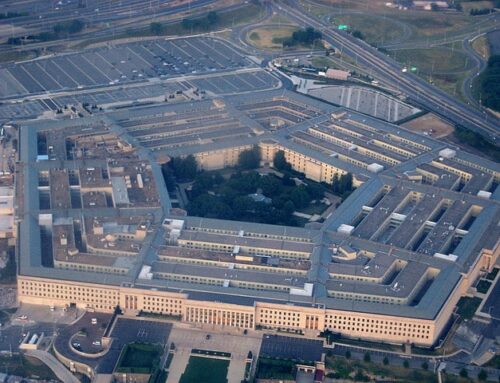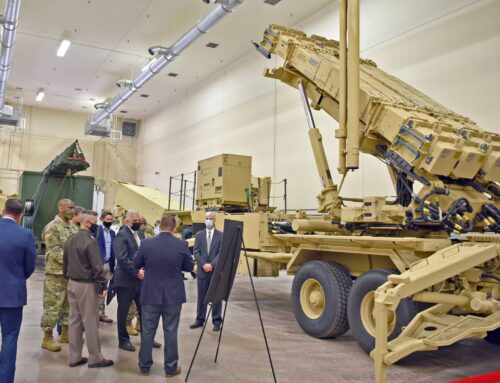Today, President Ryan Alexander issued an Op-Ed to Politico.com regarding the recent $485 million alternate engine addition by the House Armed Services Committee to the defense authorization bill.
Full text from the article can be read below. A link to Politico's opinion page can be accessed here .
House lawmakers threw down a fighter jet gauntlet to President Barack Obama and Defense Secretary Robert Gates, daring them to wield the veto pen in backing up their challenge to wasteful defense spending.
When Gates released the Pentagon’s fiscal year 2011 budget request, he singled out as veto-bait the development of an alternate, or extra, engine for the F-35 Joint Strike Fighter, the military’s next-generation aircraft.
Competing manufacturers can yield big cost cuts. That’s the reason usually cited when the government has two different companies each design and build similar components. But it actually adds $3 billion to the F-35’s price.
No, it turns out the main reason lawmakers are thumbing their nose at the administration is because spending billions on a duplicative engine means jobs back home.
The JSF alternate engine is Exhibit A in the panorama of weapons systems that congressional lawmakers fund for parochial reasons over Pentagon protests.
General Electric and Rolls-Royce lost the engine competition to Pratt & Whitney years ago. But four lawmakers from Ohio, site of the GE plant, sponsored a $170 million earmark for the alternate engine in 2007. Indiana lawmakers, including Democratic Sen. Evan Bayh, supported this because Rolls-Royce brings hundreds of jobs to their state.
The House Armed Services Committee then added $485 million to the defense authorization bill, further testing the administration’s resolve.
Though neither the Bush nor the Obama administration ever backed the jet program, Congress, pressed by powerful lawmakers and corporate lobbying, added more than $2 billion over the years to spending bills for the second engine.
Last year, the House added $465 million for the alternate engine to the fiscal year 2010 defense spending bill and attempted to pay for it by cutting two of the 30 planes that the White House requested.
The final bill dodged Obama’s veto threat by funding both the engine and the 30 planes.
Beltway insiders might shrug over these kinds of machinations, but the potential game-changer this year is the trillion-dollar deficit that threatens not only our economic security but also our national security.
Gates pointed out during a recent speech at the Dwight D. Eisenhower library in Kansas that the flood of dollars to the Defense Department after Sept. 11 exacerbated DoD’s difficulty with setting priorities,
“One of the members of Congress, I’m told, said, ‘Well, why is $3 billion for the alternative engine such a big deal when we’ve got a trillion-dollar deficit?’” Gates told reporters before his speech. “I would submit that’s one of the reasons we have a trillion-dollar deficit.”
Meanwhile, independent agencies, including the Office of Management and Budget and the Government Accountability Office, have found no evidence that building competing engines now translates into cost savings — as it did for some previous jet fighters.
Whatever money might be saved by continuing the engine competition into extra innings would most likely be swallowed up by the added expense of maintaining two separate production lines, supply chains and management teams.
There’s good reason why the Navy, Air Force and Marine Corps all insist that they don’t want, don’t need and can’t afford the second engine — especially when the nation is fighting two wars with the economy in trouble.
Legislators may claim that they know better than these defense experts. But the conflicts of interest of the program’s biggest supporters are clear.
This fight is about more than an engine — or even a sea change in the economy. It’s about the need for a sea change in the way lawmakers spend defense dollars.
Ryan Alexander is president of Taxpayers for Common Sense, a nonpartisan federal watchdog organization.
Why two jets are not better than one (Politico)











Get Social